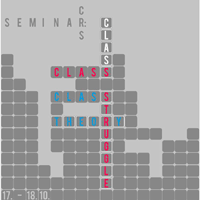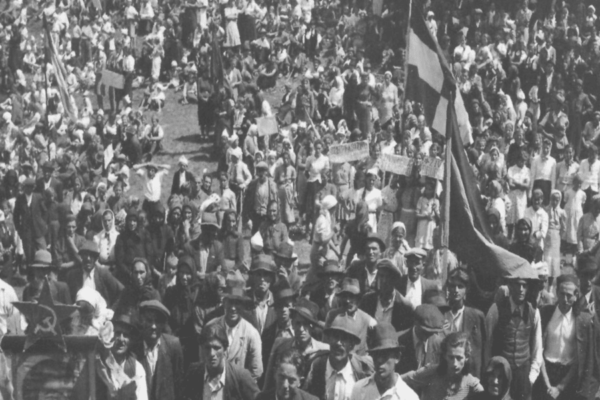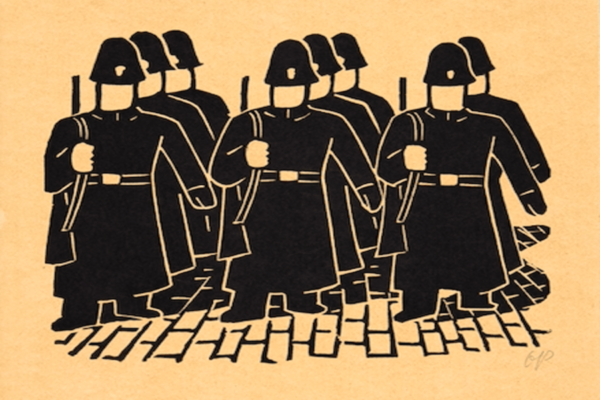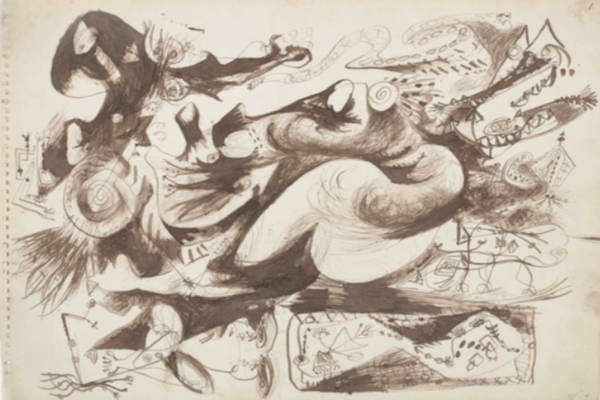CRS: Seminar “Class, Class Theory, Class Struggle”, 17-18.10.2015.
 U sklopu ovogodišnjeg ciklusa predavanja posvećenog klasi i klasnoj teoriji, Centar za radničke studije poziva u MAZ (17-18. listopada 2015., Zagreb, Hatzova 16) na seminar tijekom kojeg će Stipe Ćurković, John Milios, Dora Levačić, Mislav Žitko i Branko Bembič govoriti o odnosu između strukturne klasne analize i antikapitalističke politike, mjerama štednje kao strategiji podizanja profitne stope kapitala, odnosu između radničke klase i srednjih klasa, nedavnim političkim događajima u Grčkoj, odnosu između marksističkog analitičkog okvira i konkretnih političkih borbi, napuštanju klasne analize u hrvatskom postsocijalističkom kontekstu, projektu izradnje klasne mape postsocijalizma, povijesti slovenske tranzicije te sadašnjosti i budućnosti slovenskih radničkih organizacija. Pročitajte program i sažetke izlaganja u nastavku.
U sklopu ovogodišnjeg ciklusa predavanja posvećenog klasi i klasnoj teoriji, Centar za radničke studije poziva u MAZ (17-18. listopada 2015., Zagreb, Hatzova 16) na seminar tijekom kojeg će Stipe Ćurković, John Milios, Dora Levačić, Mislav Žitko i Branko Bembič govoriti o odnosu između strukturne klasne analize i antikapitalističke politike, mjerama štednje kao strategiji podizanja profitne stope kapitala, odnosu između radničke klase i srednjih klasa, nedavnim političkim događajima u Grčkoj, odnosu između marksističkog analitičkog okvira i konkretnih političkih borbi, napuštanju klasne analize u hrvatskom postsocijalističkom kontekstu, projektu izradnje klasne mape postsocijalizma, povijesti slovenske tranzicije te sadašnjosti i budućnosti slovenskih radničkih organizacija. Pročitajte program i sažetke izlaganja u nastavku.Mreža Antifašistkinja Zagreba, Zagreb, Hatzova 16, 17-18.10.2015.
Seminar:“Class, Class Theory, Class Struggle”
Few concepts developed by Marx and the many theoretical and political currents claiming continuity with his critical project can rival ‘class’ in their distinctive association with Marxism in all its contested plurality. Yet, the widespread consensus on the centrality of the concept for Marxism, shared by both proponents and detractors, is significantly complicated by the persistent disputes over its theoretical content. As a central category in the Marxian/Marxist theoretical arsenal, it remains subject to a wide variety of conflicting interpretations and mutually exclusive theoretical projects. Marx himself failed to provide a systemic treatment of the concept. Notoriously, the discussion of class at the end of Volume III of Capital was left a mere fragment, while the conjunctural analyses presented in political and historical writings such as The Eighteenth Brumaire and The Class Struggle in France raise questions as to their compatibility (or lack thereof) with the systemic development of categories in Capital and other texts of Marx’s mature critique of political economy.This seeming lack of coherence facilitated the development of diverging traditions, providing textual footholds for often mutually hostile approaches. The history of Marxism is thus in large part also the long history of disputes between what usually have been called ‘structural’ and more historically founded attempts at tackling the problem, with deep implications for the explanatory status of class and class struggle in Marx’s overall project as well as questions pertaining to political subjectivation, agency (their limits and conditions) and political strategy – all of which remains disputed terrain to this day. To this must be added various attempts to improve on perceived deficits or omissions in Marx’s theory by recourse to other, non-Marxists/non-Marxian theoretical traditions and approaches, amongst which more or less explicitly ‘Weberian’ approaches occupy a privileged position. Predictably, though, the often eclectic and merely additive character of many such ‘innovations’ did not go unnoticed. Rather than overcoming or silencing earlier questions as to the possibility of an internally coherent Marxist class theory, capable of plausibly superseding or bridging the longstanding structural/historical divide, such approaches more often than not amounted to their proliferation and amplification, eventually adding to them the question of the possibility of their coherent integration with various stratification theories.While these disputes may be considered to some extent ‘internal’ – arising from fundamentally affirmative approaches to the question of class and its explanatory relevance for contemporary capitalist societies, the rise of ‘new’ social movements and the perceived crisis and limits of older forms of class-based politics since the 1960s resulted in new challenges, often in the form of an outright dismissal of the ‘privileged’ status of class and class politics, in both their explanatory and political-organizational dimensions. The spreading and deepening of the influence of these new theories and the related shifts in political focus on the left – conducted under the banner of a critique and rejection of ‘class reductionism’ (often a mere code-word for Marxism itself) – has placed class-theoretical approaches in a defensive position. Ironically, this radical revision of the core inventory of the conceptual arsenal of the historical left gathered pace at a conjuncture which in retrospect may most plausibly be conceptualized as an intensification of class politics from above in the form of what has often been labeled the neoliberal offensive or ‘counterrevolution’.In Eastern Europe, the crisis and collapse of ‘real socialism’ and the subsequent drama of capitalist restoration intensified the predicaments and disorientation of the left, often leading to its wholesale dissolution in favor of an assertive and confident (neo)liberalism, virtually erasing class – considered irredeemably ‘contaminated’ by its association with the legitimizing discourse of the toppled communist regimes – as a subject of theoretical and political concern at the very moment of deep and traumatic shifts in the class composition of these societies.This Seminar will try to confront the following (and related) questions: Is there a coherent class theory in Marx? What to make of the cacophonic plurality of class theories within and around Marxism? Can the explanatory centrality of the concept of class for the understanding of contemporary capitalist societies be maintained and coherently argued for? What is the explanatory scope and where lie the explanatory limits of class-based approaches to the understanding of the complexities of capitalist societies? How to approach the vexed problem of political subjectivation and what is its relation to class? How to respond to challenges to class-based politics from within the left? What are the limits and possible virtues, both of a class-based approach and of the various challenges to it? Is it possible to theoretically and politically integrate these challenges into the project of a non-reductive renewal of class analysis and politics or is such an endeavor doomed from the start? On what grounds may such an encounter be made both analytically and politically productive?
Schedule and abstracts:
Saturday 17.10.
11.00h
Marxism, class theory and the need to differentiate levels of abstraction
Stipe Ćurković
15:30h
The working class and the middle classes: allies in a common anti-neoliberal strategy?
John Milios
17:30h
General discussion
19:15h
Talk with John Milios on Greece, Syriza and Popular Unity
Chairman: Marko Kostanić
Sunday 18.10.
11.00h
How Class works? Developing a class map for post-socialism
Dora Levačić / Mislav Žitko
15:30h
Balance of forces and working class organisations in Slovenian transition
Branko Bembič
17:30h
General discussion
Programme of Centre for Labour Studies is financed by Rosa Luxemburg Stiftung Southeast Europe.








